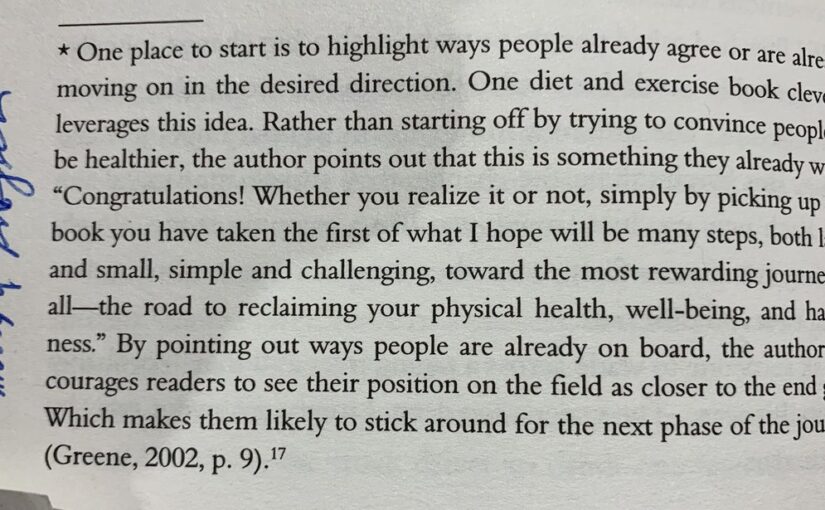REACTANCE
When pushed, people push back. So rather than telling people what to do, or trying to persuade, catalysts allow for agency and encourage people to convince themselves.
ENDOWMENT
People are attached to the status quo. To ease endowment, catalysts surface the costs of inaction and help people realize that doing nothing isn’t as costless as it seems.
DISTANCE
Too far from their backyard, people tend to disregard. Perspectives that are too far away fall in the region of rejection and get discounted, so catalysts shrink distance, asking for less and switching the field.UNCERTAINTY
Seeds of doubt slow the winds of change. To get people to un-pause, catalysts alleviate uncertainty. Easier to try means more likely to buy.
CORROBORATING EVIDENCE
Some things need more proof. Catalysts find corroborating evidence, using multiple sources to help overcome the translation problem.
Excerpt from: Catalyst by Jonah Berger





